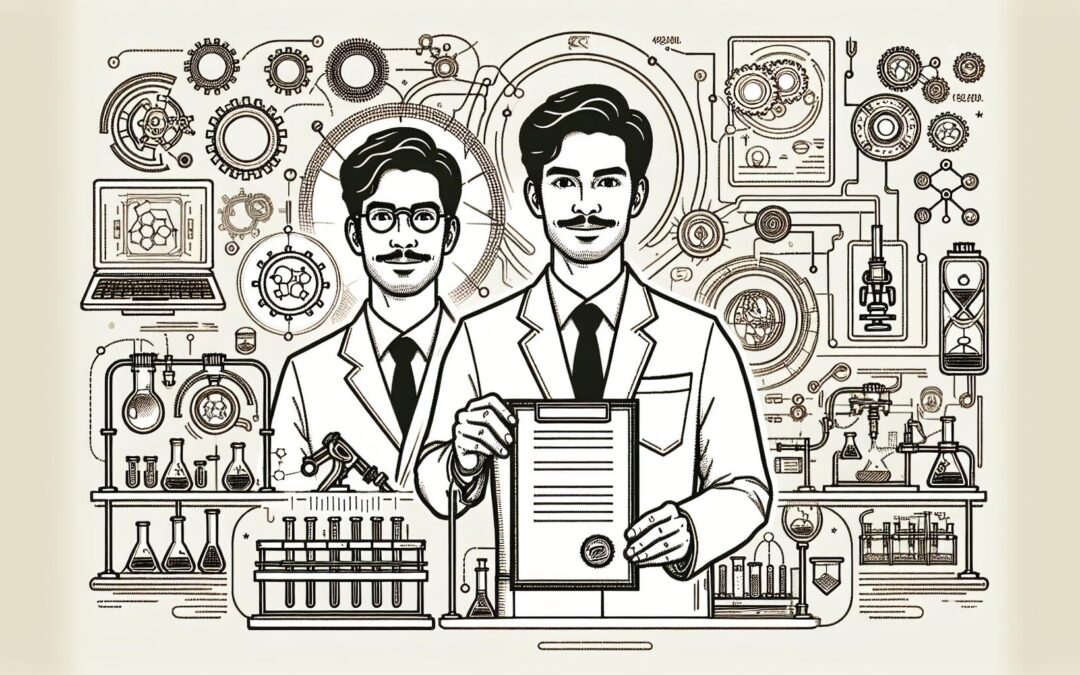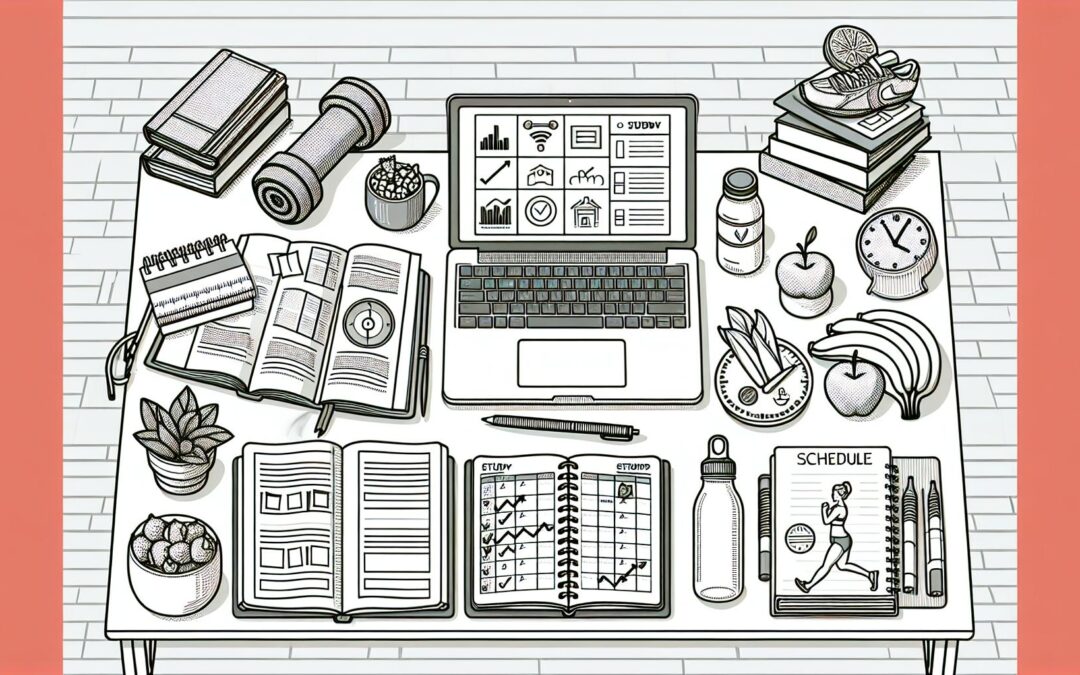Preparing for the Patent Bar Exam can be an intense and mentally demanding process. The exam itself is known for its complexity and breadth of topics, making it essential for test-takers to be mentally prepared. In this article, we will delve into the various aspects of mental preparation for the Patent Bar Exam, including understanding the exam, managing stress and fatigue, and employing effective study strategies. By implementing these techniques, you can enhance your mental resilience and increase your chances of success on the Patent Bar Exam.
Understanding the Patent Bar Exam
The first step in mentally preparing for the Patent Bar Exam is to gain a solid understanding of what this exam entails. The exam is not just a test of knowledge, but a comprehensive assessment that evaluates an individual’s eligibility to practice as a patent attorney or agent in the United States. It is a challenging and rigorous exam that requires extensive preparation and dedication.
The Patent Bar Exam, officially known as the United States Patent and Trademark Office (USPTO) Registration Examination, is designed to test an individual’s knowledge of patent laws, regulations, and procedures. It assesses their ability to apply this knowledge in practical scenarios, simulating real-world situations that patent attorneys and agents encounter in their professional practice.
What is the Patent Bar Exam?
The Patent Bar Exam, also referred to as the USPTO Registration Examination, is a crucial step for individuals seeking patent-related careers in the United States. It is a comprehensive assessment that evaluates an individual’s understanding of patent laws, regulations, and procedures.
Passing the Patent Bar Exam is a requirement for individuals who wish to practice as patent attorneys or agents. It is administered by the USPTO and is considered a challenging and demanding exam that tests the depth of an individual’s knowledge and their ability to apply that knowledge in practical scenarios.
Individuals who pass the Patent Bar Exam demonstrate their proficiency in patent law and gain the authority to represent clients before the USPTO. This opens up numerous job opportunities in the field and provides a significant advantage in the competitive world of patent law.
The Structure of the Patent Bar Exam
The Patent Bar Exam is divided into two sections: the “Morning” session and the “Afternoon” session. Each session is three hours long, resulting in a rigorous back-to-back experience that demands mental stamina and focus.
The Morning session primarily focuses on the Patent Act and the rules associated with patent prosecution. It tests an individual’s understanding of the legal framework governing patents and their ability to navigate the complex procedures involved in patent prosecution.
The Afternoon session emphasizes the Patent Cooperation Treaty (PCT) and the Patent Trial and Appeal Board (PTAB) proceedings. It assesses an individual’s knowledge of international patent laws and their ability to handle disputes and appeals before the PTAB.
The structure of the Patent Bar Exam is designed to comprehensively evaluate an individual’s knowledge and skills in various aspects of patent law. It ensures that individuals who pass the exam have a well-rounded understanding of patent laws and are equipped to handle the challenges that arise in their professional practice.
Importance of the Patent Bar Exam
The Patent Bar Exam holds significant importance for aspiring patent attorneys and agents. Passing the exam is not only a testament to one’s knowledge and understanding of patent law but also a gateway to lucrative job opportunities in the field.
Successful completion of the Patent Bar Exam grants individuals the authority to represent clients before the USPTO. This authority is highly valuable and provides a competitive edge in the legal profession. It allows individuals to engage in patent prosecution, handle appeals, and protect the intellectual property rights of their clients.
Moreover, passing the Patent Bar Exam demonstrates a commitment to excellence and professionalism in the field of patent law. It showcases an individual’s dedication to staying updated with the ever-evolving patent laws and regulations, which is crucial in providing effective legal representation to clients.
In conclusion, the Patent Bar Exam is a challenging and comprehensive assessment that evaluates an individual’s eligibility to practice as a patent attorney or agent in the United States. It tests one’s knowledge of patent laws, regulations, and procedures, as well as their ability to apply this knowledge in practical scenarios. Passing the exam opens doors to lucrative job opportunities and grants individuals the authority to represent clients before the USPTO. It is a pivotal point in the career path of aspiring patent attorneys and agents, showcasing their proficiency in patent law and their commitment to excellence in the field.
The Mental Challenges of the Patent Bar Exam
Preparing for the Patent Bar Exam is not only about acquiring knowledge but also about managing the mental challenges associated with the test. Here, we explore some of the common mental hurdles that test-takers may encounter.
Aspiring patent attorneys often find themselves facing a myriad of mental obstacles while preparing for the rigorous Patent Bar Exam. These challenges not only test their knowledge and understanding but also push the boundaries of their mental resilience and perseverance.
The Stress Factor
The Patent Bar Exam is known for inducing high levels of stress among test-takers. The pressure to perform well, combined with the extensive syllabus, can create a daunting environment. The weight of knowing that success on this exam is crucial for a career in patent law can be overwhelming.
Test-takers must learn to manage and cope with this stress in order to maintain mental clarity and focus during the exam. Developing effective stress management techniques, such as deep breathing exercises, meditation, or engaging in physical activities, can help alleviate the pressure and anxiety associated with the exam.
The Fatigue Factor
Enduring back-to-back hours of examination can lead to mental fatigue, which can significantly impact performance. The sheer length of the Patent Bar Exam, combined with the complex subject matter, can exhaust even the most diligent test-takers.
To combat this, it is important to adopt strategies that minimize fatigue. Incorporating regular breaks during study sessions can help rejuvenate the mind and prevent burnout. Additionally, implementing effective time management techniques, such as breaking down study sessions into manageable chunks and creating a structured study schedule, can help optimize productivity and reduce mental exhaustion.
The Concentration Factor
One of the biggest challenges in the Patent Bar Exam is maintaining sustained concentration over an extended period of time. The exam requires attentiveness to complex details and the ability to apply them accurately.
Building concentration skills through practice is essential for success on the Patent Bar Exam. Test-takers can improve their ability to focus by engaging in activities that enhance concentration, such as solving puzzles or engaging in mindfulness exercises. Creating a study environment free from distractions, such as noise or electronic devices, can also help foster better focus and attention during study sessions.
It is important for test-takers to recognize and address these mental challenges in order to fully prepare themselves for the Patent Bar Exam. By developing effective stress management techniques, combating fatigue, and enhancing concentration skills, aspiring patent attorneys can maximize their chances of success on this demanding examination.
Mental Preparation Techniques for the Patent Bar Exam
Now that we have discussed the mental challenges of the Patent Bar Exam, let’s explore some techniques that can help you mentally prepare for it.
Preparing for the Patent Bar Exam goes beyond just studying the material. It also involves training your mind to stay focused, manage stress, and maintain a positive mindset. Here are some additional techniques that can assist you in your mental preparation:
Mindfulness and Meditation
Mindfulness and meditation practices have been proven to decrease stress levels and improve concentration. Allocating a few minutes each day to practice mindfulness or meditation can help you develop mental resilience and stay focused during the exam.
During mindfulness exercises, you can focus your attention on the present moment, allowing you to let go of distractions and worries. By practicing meditation, you can train your mind to be more calm and centered, enabling you to approach the exam with a clear and focused mindset.
Visualization Techniques
Visualization involves creating mental images of successfully completing the Patent Bar Exam. By vividly imagining yourself confidently answering exam questions and effectively managing stress, you can program your mind for success. Regular visualization exercises can increase your confidence and mental preparedness for the exam.
When practicing visualization, it is important to engage all your senses. Imagine the exam room, the sound of the clock ticking, and the feeling of confidence radiating from within. By visualizing success, you are training your mind to believe in your abilities and to approach the exam with a positive attitude.
Positive Affirmations and Self-Talk
Positive affirmations and self-talk can significantly impact your mindset and overall performance. Repeating positive statements and encouraging self-talk can boost your confidence, reduce anxiety, and enhance your belief in your capabilities. Construct a set of affirmations tailored to your needs and recite them daily to build a positive mental outlook.
When creating positive affirmations, focus on statements that reinforce your strengths, such as “I am well-prepared and capable of passing the Patent Bar Exam” or “I approach challenges with confidence and determination.” By consistently repeating these affirmations, you are rewiring your brain to believe in your abilities and to approach the exam with a positive mindset.
Remember, mental preparation is just as important as studying the material. By incorporating mindfulness and meditation, visualization techniques, and positive affirmations into your daily routine, you can enhance your mental resilience, boost your confidence, and increase your chances of success in the Patent Bar Exam.
Study Strategies for the Patent Bar Exam
In addition to mental preparation, implementing effective study strategies is essential for success in the Patent Bar Exam.
Creating an Effective Study Schedule
Developing a well-structured study schedule is a key factor in optimizing your preparation efforts. Start by identifying your strengths and weaknesses, then allocate study time accordingly. Breaking the syllabus into manageable chunks and adhering to a consistent study routine can help you cover the material thoroughly and avoid last-minute cramming.
Understanding and Memorizing Key Concepts
The Patent Bar Exam requires a deep understanding of patent laws, regulations, and procedures. Rote memorization alone is insufficient. Focus on understanding the underlying principles and concepts and make connections between different topics within patent law. Incorporate active learning techniques, such as creating concept maps or teaching others, to reinforce your understanding.
Practice Exams and Mock Tests
Engaging in regular practice exams and mock tests is an effective way to assess your progress and identify areas that require further attention. Simulating the exam environment can help you develop time management skills, familiarize yourself with question formats, and improve your overall test-taking strategy. Use practice exams as an opportunity to refine your knowledge and identify weak areas for additional study.
By following these mental preparation techniques and study strategies, you can enhance your chances of success on the Patent Bar Exam. Remember to take care of your mental well-being throughout the preparation process and approach the exam with confidence. Best of luck!











